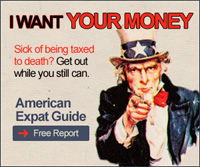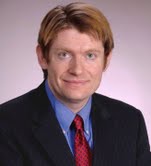This is unfortunate, because if free trade is wrong, then it is coldly, factually wrong on its merits, and turning it into a drama of innocents and villains is unnecessary.
For example, sometimes the Third World is cast as the villain.
But whatever harm Third World nations like China have done to America through trade, most has been due to our own foolishness in embracing free trade. The protectionist America of 1925 would have been barely scratched.
Only a limited amount of this harm consists of things, like industrial espionage and brand piracy, which really are inexcusable outright theft. These are indeed a problem. According to Michael Porter of Harvard Business School, two-thirds of the American computer software used in China is stolen. Copyright theft there is estimated to cost the U.S. $2.6 billion a year, and up to 20 percent of China’s growth is connected in some way with theft of intellectual property. (Sources: “Porter: Unfair Trade Plays a role in Declining U.S. Competitiveness,” Manu-facturing & Technology News, June 30, 2008; “Competitiveness Index: Where America Stands,” Council on Competitiveness, 2007, p. 77; Peter Navarro, The Coming China Wars, p. 25.)
Conversely, sometimes, especially on the left, the Third World is presented as the innocent victim of a First World trying to use free trade to keep it down. This view was expressed by the former Prime Minister of Malaysia, the bigoted but not unintelligent Mahathir bin Mohamad, thus:
Japan was developing at a time when the Western countries did not believe that Eastern countries could actually catch up with the West, so Japan was allowed. And then, of course, later on, when Japan appeared to be doing too well all the time, the yen was revalued upwards in order to make Japan less competitive. You can see that these are deliberate attempts to slow down the growth in Japan… and after that, of course, Southeast Asian countries, even Malaysia, began to develop fast, and there seemed to be a fear that Eastern countries might actually pose a threat to Western domination, and so something had to be done to stop them. (Source: “Malaysian Prime Minister: ‘We Had to Decide Things For Ourselves’,” Executive Intelligence Review, February 19, 1999.)
Mahathir here basically accuses the developed world of seeking to lock in its present industrial advantage, leaving the rest of the world supplying it raw materials and low-value industrial scraps. Third World nations often (understandably) perceive this as a rerun of colonialism.
For a start, if it has the control over the world economy Mahathir imagines, then it should have succeeded by now. Yet Third World giants like China and India surge ahead.
It is also unlikely that the First World corporations which actually conduct international trade serve the interests of the nations in which they are headquartered, as opposed to their own profits.
Economic, political, and technological power are just too widely distributed in the world today for the literal fulfillment of Mahathir’s scenario, even if anyone seriously wanted it (which is doubtful).
Another villain theory is that big corporations are evil—an accusation heard at both extremes of the political spectrum, though the right tends to use words like “treasonous.” But corporations don’t behave as they do because they are evil (or disloyal). They behave as they do because the rules they operate under make certain behavior profitable.
If free trade is legal, we should not get morally indignant when corporations fire their high-cost American workforces and move production overseas. We should change the rules that encourage this. Competitive pressures force even corporations that would rather not act this way, which certainly exist, to go along.
Cynical comments about politicians, which one hears all the time, are an evasion of our own responsibility. In America, we elected them, so what they do ultimately reflects what we want. If we voters are corrupt, and vote for short-term gratification, something for nothing, and sweet deals for our special interests, then the politicians we elect will be corrupt, too.
But if we wise up and a sense of national crisis engenders a sense of national purpose, then we may demand (and get) a trade policy sufficiently honest and rational to work. This has happened on other issues before.
This all raises an important question: do America’s rulers secretly know that they’re making a mess with free trade—but go on doing it for profit’s sake—or do they sincerely believe in the policy? The author cannot pretend to be privy to anyone’s private thoughts, but it seems to vary by individual. Most such people, especially those whose professional expertise isn’t in economics, genuinely believe in the free trade consensus. They instinctively defer to the officially anointed experts, and these all tell them free trade is correct. And establishmentarians who are economists by training are usually among the 93 percent who believe in free trade. Even those who are among the seven percent who don’t, usually keep their mouths shut for career reasons.
So if there are any powerful people cackling with glee at the misery they’re cynically inflicting on the rest of us, they’re probably few and far between.
Never attribute to evil what is adequately explained by ordinary stupidity and greed.
linkwithin_text=’Related Articles:’



Be the first to comment on "No Need for Villains on the Trade Issue"